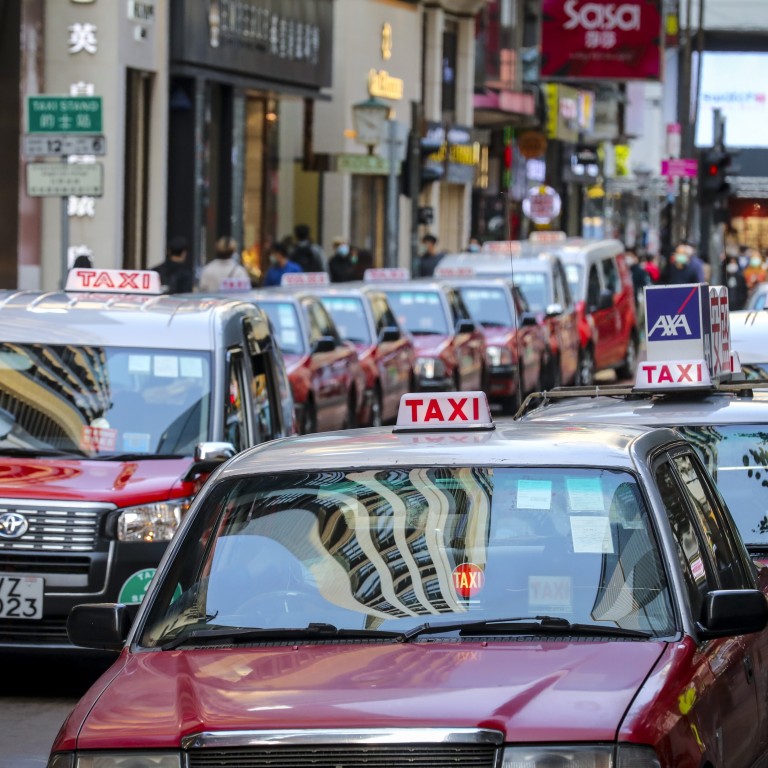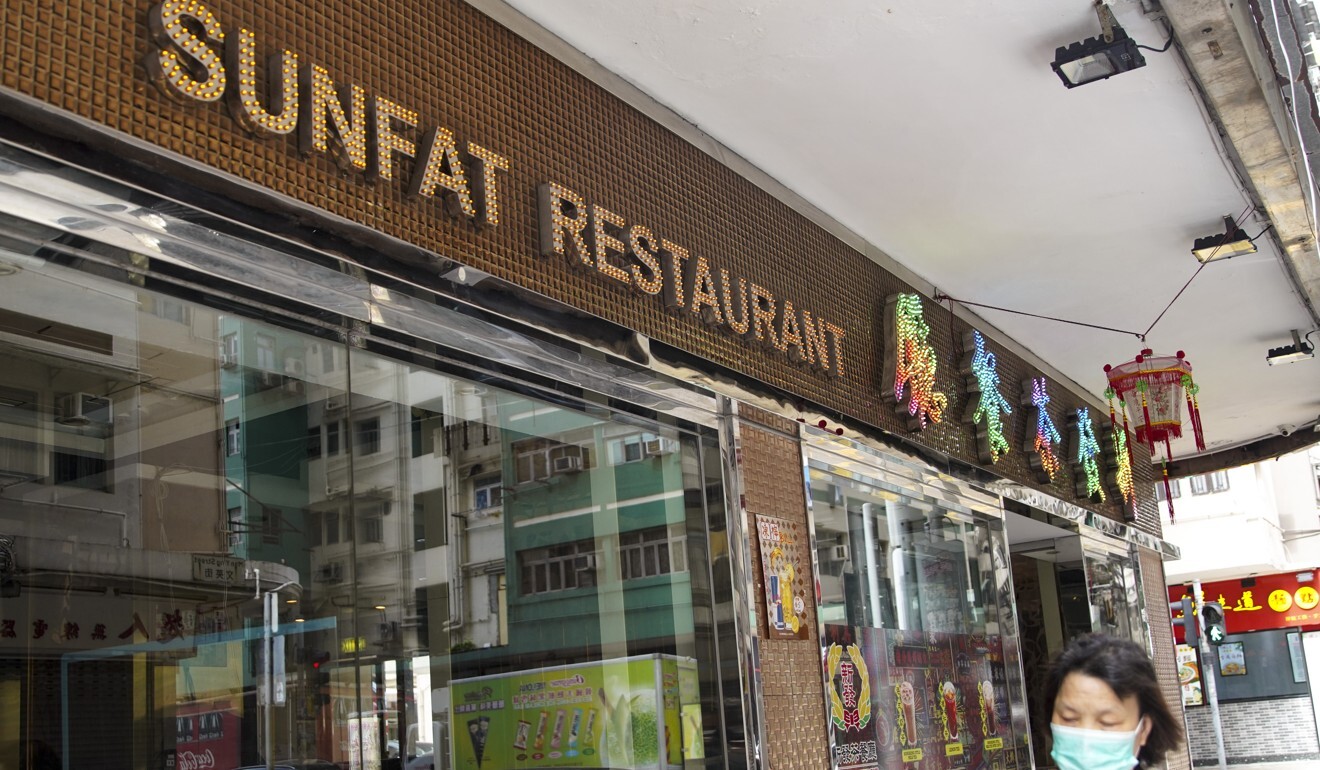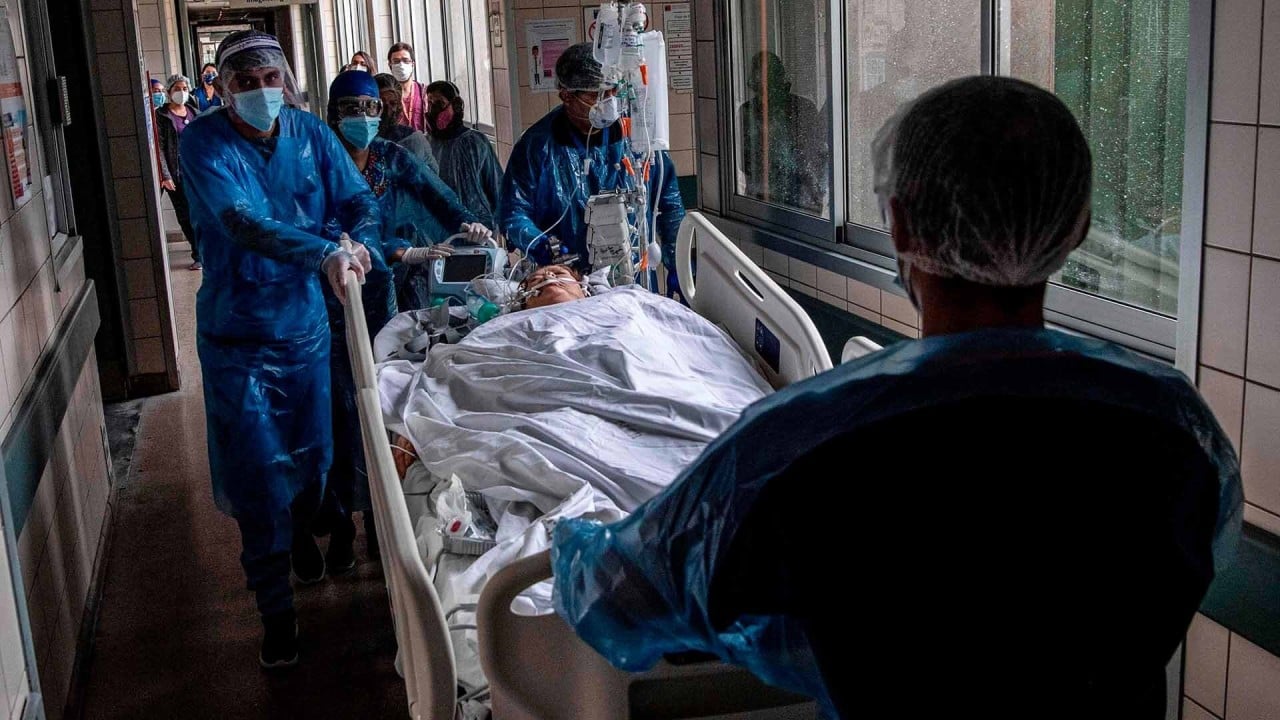
Protests, Covid-19 and now an infection cluster involving six taxi drivers: Hong Kong’s cabbies brace for fresh industry beating
- Sector may face a drop of 10 to 20 per cent in business after news of six drivers linked to infection cluster, and disclosure of their licence plates
- Drivers advised to avoid favourite eateries and consume takeaway meals in vehicles instead
Hong Kong’s embattled taxi industry is facing a 20 per cent drop in business after taking a fresh round of beating on Thursday, when a new Covid-19 cluster of six cab drivers led to the government revealing their licence plate numbers.
Restaurant table seating limit to return to eight amid surge in local infections
Hong Kong’s taxi drivers have also been urged to take extreme precautions, such as eating alone and avoiding restaurants frequented by peers, as well as wearing eye shields to minimise infection risks.
The city’s 40,000 active cabbies are deemed a high-risk group because of their frequent contact with strangers. By Thursday, the city had recorded 1,365 confirmed cases, eight of whom are taxi drivers.

01:29
Hong Kong battling third wave of coronavirus infections as city confirms 14 new cases
Dr Chuang Shuk-kwan, head of the communicable disease branch under the Centre for Health Protection, said among the six newly infected cabbies, some of them were linked to recent outbreaks at Sun Fat Restaurant in Jordan and Bun Kee Congee and Noodle Shop in Tsz Wan Shan.

The government would publish their vehicle plate numbers for contact tracing but would not conduct mandatory coronavirus testing on all taxi drivers.
“In response to the recent cluster outbreaks, we will conduct more targeted testing in communities, including for staff in elderly care homes, the catering sector, and public transport drivers,” said Secretary for Food and Health Sophia Chan Siu-chee. She added: “The aim is to detect and isolate asymptomatic carriers, to break the chain of infection.”

02:45
Global Covid-19 death toll hits 500,000 as coronavirus infections surge past 10 million
Chan also said the government would work with the Social Welfare Department, the Transport Department and the catering sector to arrange tests processed by private laboratories.
Health officials did not say the tests were mandatory for workers in the affected clusters, but stressed that community surveillance would be ramped up.
Chuang said: “We call upon taxi drivers who had visited Sun Fat Restaurant and Bun Kee Congee and Noodle Shop, or if they have been in contact with some of the confirmed cases, to go to the hospital [for testing] even if you don’t have symptoms.”
People may think that drivers are easily infected with Covid-19. Passengers may refrain from taking taxis
Ng Kwan-sing, vice-chairman of the Hong Kong Taxi Council, said the latest disclosure of the drivers’ cluster was a fresh blow to an industry already hit hard by months of social unrest, triggered last June by the now-withdrawn extradition bill, and the pandemic.
“People may think that drivers are easily infected with Covid-19. Passengers may refrain from taking taxis,” he said.
For Hong Kong cabbies, Covid-19 brings financial pain and infection risks
Ng said the taxi industry had recently rebounded to about 80 per cent of pre-pandemic performance, but now he expected their business to drop by at least 10 per cent, and possible by more than 20 per cent.
According to official statistics, Hongkongers took an average of 854,500 taxi journeys a day in 2019, down almost 4 per cent from 889,000 trips in 2018. In April, this figure dropped to 550,100 daily, down 36 per cent from 861,000 a year earlier.
Ng also called on the government to provide free coronavirus tests for cabbies as the high costs discouraged them from getting checked voluntarily.
Microbiologist Dr Ho Pak-leung said passengers taking taxis should open their windows to allow air flow and pay extra attention to hand hygiene.
Chan Man-keung, a spokesman for the Association of Taxi Industry Development, admitted the emergence of new cases among drivers and the disclosure of their vehicle numbers would further batter the industry as these stigmatised members.
He said taxi drivers should avoid hanging around restaurants and chatting with others while eating. “Once they finish their meals, they should immediately leave.”
Uber, taxis struggling in Hong Kong as people stay off the streets
Wong Po-keung, chairman of the Hong Kong Taxi Owners’ Association, called on cabbies to refrain from visiting their popular eating haunts. “Apart from stepping up precaution measures such as more disinfection of their vehicles, taxi drivers should avoid eating at restaurants. The best way is for them to order takeaway, and eat inside their car. Apart from wearing face masks, they should also wear eye shields,” he said.
Cabby Tom Ku Ching-tung, 35, however, said he could not stand eating alone in his vehicle. “Now I avoid eating with other drivers. I will eat alone at a restaurant and immediately leave once I finish my meal.”


